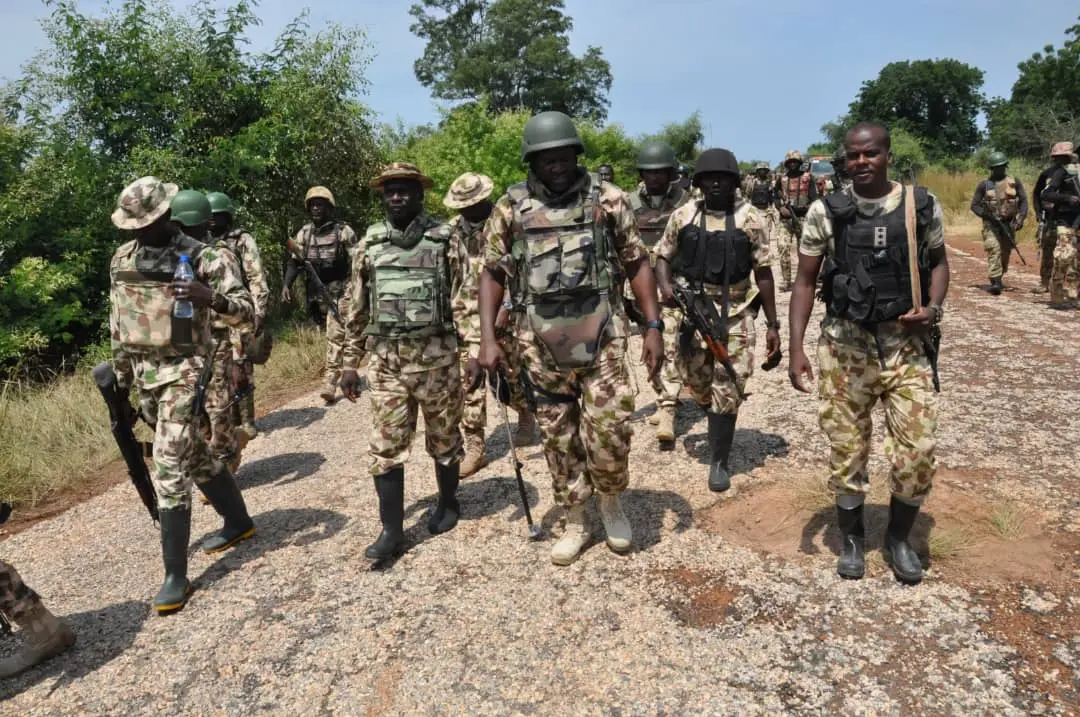Repraisal Attack: Okuama Community Drags Nigerian Army To Court, Seeks ₦100 Billion In Damages
 The Federal High Court in Warri, Delta State, commenced proceedings on Thursday on a lawsuit involving the Okuama community of Ughelli North Local Government Area.
The Federal High Court in Warri, Delta State, commenced proceedings on Thursday on a lawsuit involving the Okuama community of Ughelli North Local Government Area.
the Okuama community is seeking ₦100 billion in damages from the Nigerian Army.
The community alleges military invasion and destruction, which followed the March 14, 2024 incident where 17 military personnel were killed during a peace mission amidst communal clashes.
The case, filed under reference number FHC/WR/CS/41/2024, involves 17 plaintiffs representing the Okuama community.
They include Victor Akemor, Madam Omotiwori Olarehor, and 15 others who claim their fundamental rights were violated by the military’s actions.
During the initial hearing, the community’s legal representative, Akpokona Omafuaire, affirmed the court’s jurisdiction over the case, citing multiple sections of the 1999 Constitution that address human rights.
Notably, the Nigerian Army was absent from the proceedings, with no legal representation present.
Justice I. M. Sani, presiding over the case, has scheduled the next hearing for June 4, where the substantive issues will be addressed.
The plaintiffs are demanding compensation for the alleged violation of their rights, including the dignity of human persons, fair hearing, private and family life, freedom of movement, choice of residence, and property ownership.
According to the lawsuit, the military operation led to the extensive destruction of the Okuama community, sparing only the Anglican Church, Okuama Secondary School, and the Aderha Primary School.
The plaintiffs also accuse the military personnel of looting properties and imposing collective punishment on the community without proper investigation or evidence linking the residents to the soldiers’ deaths.
The community members described the aftermath of the invasion as catastrophic, forcing them to flee to forests, bushes, and creeks, living in destitute conditions without basic necessities such as shelter, food, or water.
They highlighted their exposure to harsh weather conditions, wildlife, and health risks.













